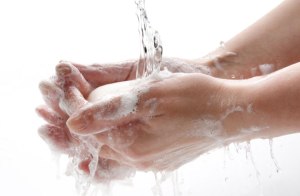You may have wondered what happened to Environmindful Mondays. Well, quite honestly, I did too. After doing a little reflecting I realized that the reason I haven’t been posting isn’t because I ran out of environmental posts but instead because I realized that with some of the posts and things I’ve been doing in my home, I realized I was missing pieces of the puzzle to be able to fully explain why some of these topics are important, which I think is crucial to making change.
If we make a change in our lives just because someone told us we should but we don’t understand why we are doing it, chances are it won’t last. On the other hand, if we understand a situation/problem and understand how we fit into or contribute to that situation/problem, then it makes it easier to understand why we should change and what the impact is if we choose not to.
For example, let’s say a friend says, “You should really stop using fabric softener.” You ask why and the response is, “Because I heard it’s bad.” At first you think, “Oh, geeze. Okay, my friend says fabric softener is bad. I’d better stop using it.” So you do. Time goes by and you forget the conversation with your friend. You forget the details (because there weren’t any). Over time you start to miss the scent of freshly washed clothes and start getting annoyed with static. Or, maybe your spouse asks, “What’s so bad about it?” You can’t remember. You can’t justify your decision, so chances are you’re going to buy fabric softener and start using it again.
Environmindful Monday Tip #14: Why You Don’t Want to Use Fabric Softener
On the other hand if your friend says, “You might want to reconsider using fabric softener.” You ask why and the response is, “There are a lot of dangerous, and even, toxic chemicals in them. Some cause asthma, some are hormone disruptors (meaning they can cause birth defects) to both people and wildlife, and the scents you smell are typically carcinogens, which are toxic chemicals linked to cancer. This stuff isn’t just bad for the people who use it either. All of these toxins are in our air from our dryer vents and they are even finding it in our ground water and drinking water from using liquid fabric softeners in our washers.” You try to justify your fabric softener addiction for a minute and say, “But I hate static.” Your friend says, “Oh, then you’re just over-drying your clothes. Don’t dry them so long. You won’t have static.” If you’re like me, when I first heard all the information on fabric softener I had to hold onto my stomach. At the time, my son was about 3 years old. When I realized I was putting all of these chemicals directly on his skin via his clothes, into the air and into our water I felt sick. But you know what? It made an impact. I stopped using fabric softener immediately. I also haven’t forgotten the dangers these chemicals pose to myself, my family, our air, our water and the rest of the environment. And I definitely have not had any sort of urge to use fabric softener, in any form, in my home since.
I still want to honor the commitment I made to Norwex and the Norwex R.A.C.E., myself and you, as my readers to continue to share environmental posts, but I am renegotiating with myself (and you), to make sure I honor that commitment in the best way possible, therefore, you will continue to see Environmindful Monday posts, maybe not every Monday, but on Mondays that I believe I have content that is worth sharing and that I am clear on why these topics are important and why we should all be committed to making a change.
Oh, and yes. I’m aware that this Environmindful Monday post is coming to you on Tuesday. I’m working on that too. 😉
May you have a clean and healthy day filled with fresh scents of a real spring breeze.
Kate



